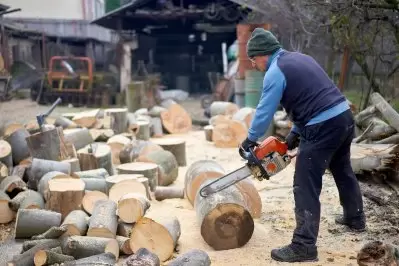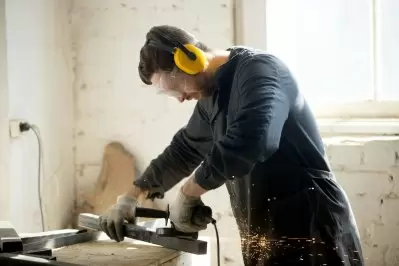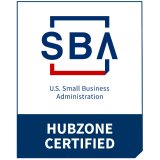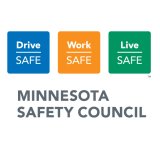Too Loud, Too Late: The Long Term Effects of Excessive Noise Outside of Work
Throughout day to day life, there are standards and benchmarks that exist to give people an idea of thresholds and recommendations for safety. There are posted speed limit signs on every drivable surface. The proper number of life jackets must accompany boaters and watercraft. Capacity limits in elevators, airlines, and even restaurants for fire code. Many people are well-versed in knowing these regulations and rules (even if they don't always adhere to them) but what about the guidelines for everyday noise exposures and safety precautions to protect our hearing?
Noise Without Knowing It
 I had this conversation with my wife the other day when it came to our kids. She was blown away by the fact that if our kids are listening to music, it could be too loud. The bad equation here, so to speak, is the noise level plus time exposed. It's not uncommon for people to spend a few hours listening to their devices. Sound is being piped directly into the ear. And it can be intense.
I had this conversation with my wife the other day when it came to our kids. She was blown away by the fact that if our kids are listening to music, it could be too loud. The bad equation here, so to speak, is the noise level plus time exposed. It's not uncommon for people to spend a few hours listening to their devices. Sound is being piped directly into the ear. And it can be intense.
Hearing loss is insidious and more likely to occur over time without people even knowing it. I use the example of people experiencing changes in vision or sight loss. You'll know something is amiss when your vision starts to falter. You can literally see it happening. We're not as lucky when it comes to our hearing. Of course, in high-noise industries and careers where hearing protection comes standard every day, there's more awareness of noise damage and how to combat it to protect hearing. Yet, there are plenty of places where noise is more unsuspecting, instances where people simply might not be aware of the threat.
Unsuspecting Culprits of Noise
- Military —I'm a military veteran and the military is full of heavy equipment and artillery. Whether training, occasional duty weekends, or full deployment — it's all loud and ongoing.
- Landscaping and power tools — I just told my dad last year when he was operating a chainsaw that he should really use hearing protection. He told me it wasn't that loud; I told him it could easily be over over 100 dBA. That's extremely loud! This goes for homeowners and weekend warriors alike, not just professional services.
- Vehicle noise — diesel rigs are extremely loud, but motorcycles and snowmobiles can be too
- Musicians, music fans and concert-goers
- Entertainment venues — think of loud restaurants or bars where you have to continually raise your voice to order a drink or engage with a server. There's sporting events, too.
Simple Lack of Awareness = Significant Cost
 I mentioned the scenario with my dad on that list because, in my opinion, people damage their hearing due to a fundamental lack of awareness. It's not generational; it's not younger people who don't think about hearing protection or think they'll be immune to hearing loss. It's simply being unaware of how much noise we're exposed to in unlikely places. Think about the ways vision, for example, is portrayed in advertisements and media. There's a lot. Protect your eyes. Wear protective sunglasses and safety goggles. Maintain preventative eye exams. Etcetera. There just isn't the same push from hearing. Have you ever even seen an ad focused specifically on hearing loss and ways to counteract its effects across our population?
I mentioned the scenario with my dad on that list because, in my opinion, people damage their hearing due to a fundamental lack of awareness. It's not generational; it's not younger people who don't think about hearing protection or think they'll be immune to hearing loss. It's simply being unaware of how much noise we're exposed to in unlikely places. Think about the ways vision, for example, is portrayed in advertisements and media. There's a lot. Protect your eyes. Wear protective sunglasses and safety goggles. Maintain preventative eye exams. Etcetera. There just isn't the same push from hearing. Have you ever even seen an ad focused specifically on hearing loss and ways to counteract its effects across our population?
When people do think about hearing loss, a lot of times, it's just, well, I'll just get a hearing aid when I need it. That's not going to work for everyone, and even though hearing aids can help many people, it's not the same as your natural hearing. People have no idea what truly is at risk. It's not something we talk about every day.
Hearing loss may occur slowly, and all of a sudden, you have damage you weren't even tracking as happening in real-time. They don't realize it until they're in their 50's, and all of a sudden, they can't hear grandkids or their kids talk to them. In some situations, you'll see people who are not necessarily reading lips but trying to understand what the person is saying by looking at their mouths as they speak. They're not necessarily reading exactly what they're saying, but they're catching the vowels and the consonants when people move their lips a certain way.
Consonants become especially tricky in hearing loss: it can be the difference between comprehending the words fist and fish and differentiating between the two. That will make for some confusion.
They likely have just associated this hearing loss as an everyday thing, or age-related and normal, to an extent. With this realization comes clarity: situations that people wouldn't normally think are loud, like radios, televisions, operating household items, etc. truly are. Everyone around that person is responding with it's extremely loud and hearing has been damaged, and usually irreversibly.
Protecting Hearing at All Costs

My general rule of thumb for people is, if you have to raise your voice above any noise or din, you need hearing protection. And you need to be consistent.
When I walk into a facility, and I see someone without hearing protection in or it's improperly inserted, I immediately go up to that person and mention for educational purposes that they might be wearing hearing protection wrong. A lot of times, those individuals are surprised and mention how they haven't been told right from incorrect. Hearing conservation programs are one way to ensure an entire workforce is safely operating in order to protect their hearing. But protecting yourself in a workplace, especially high-noise where safety mandates are status quo, is different than recognizing the ways you're exposing yourself to hearing damage in everyday life.
How Loud is Too Loud
- Remember the One-Yard Rule: If you have to shout to be heard by others one yard away, then the background noise is likely in a hazardous range.
- You notice after being exposed to noise:
- Tinnitus (ringing) or pain in ears
- Speech seems muffled
- Turning up the volume on radio or TV
What You Can Do to Protect Yourself
- Turn down the volume
- Walk away from loud noise
- Buy quieter equipment and tools
- Wear effective hearing protection whenever you are exposed to loud noise
- Get your hearing tested on a routine basis
Make sure your hearing lasts a lifetime!
Resources for Learning More about Recreational Noise
| Category: | Non-Occupational/General Interest |






